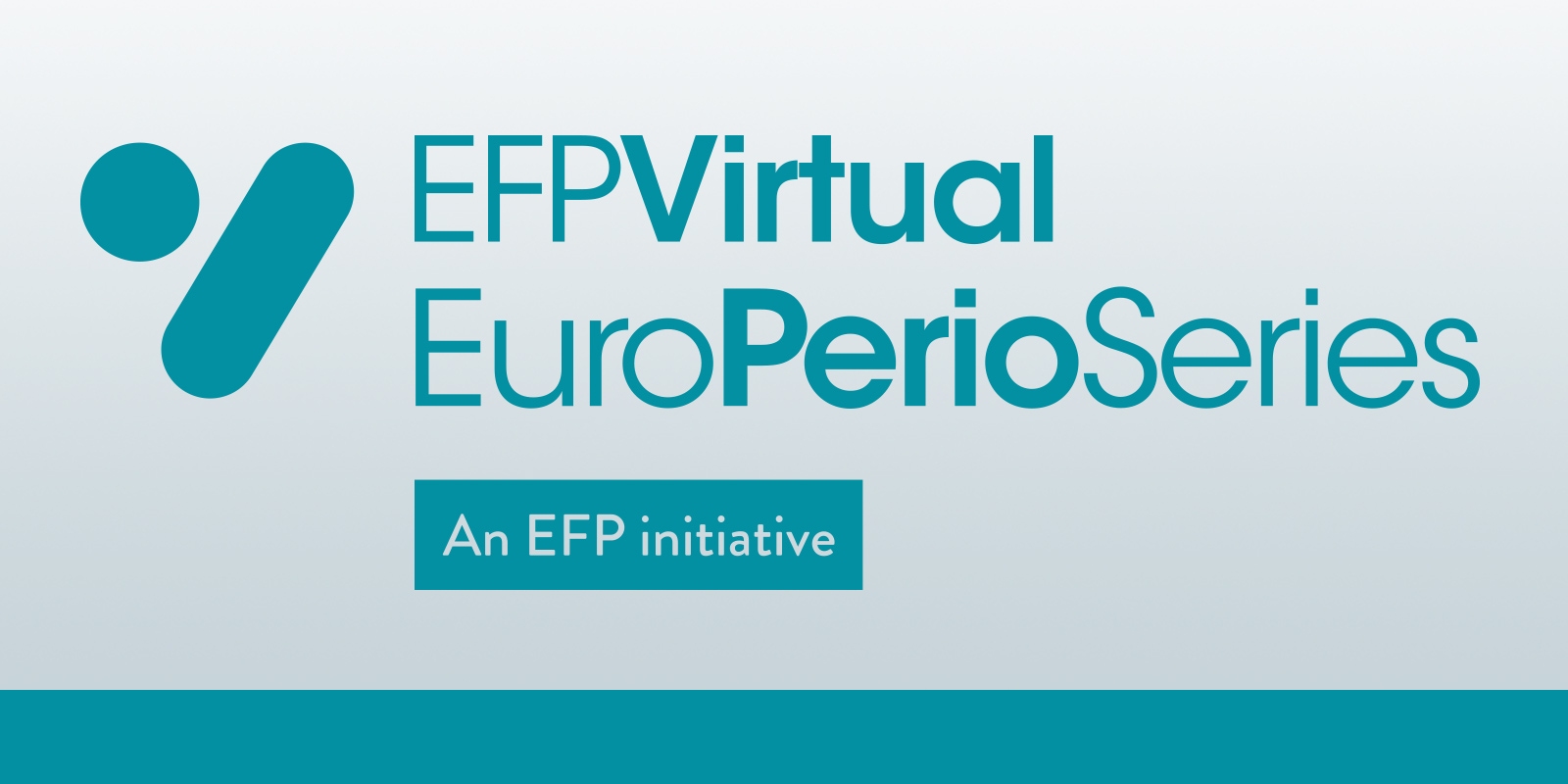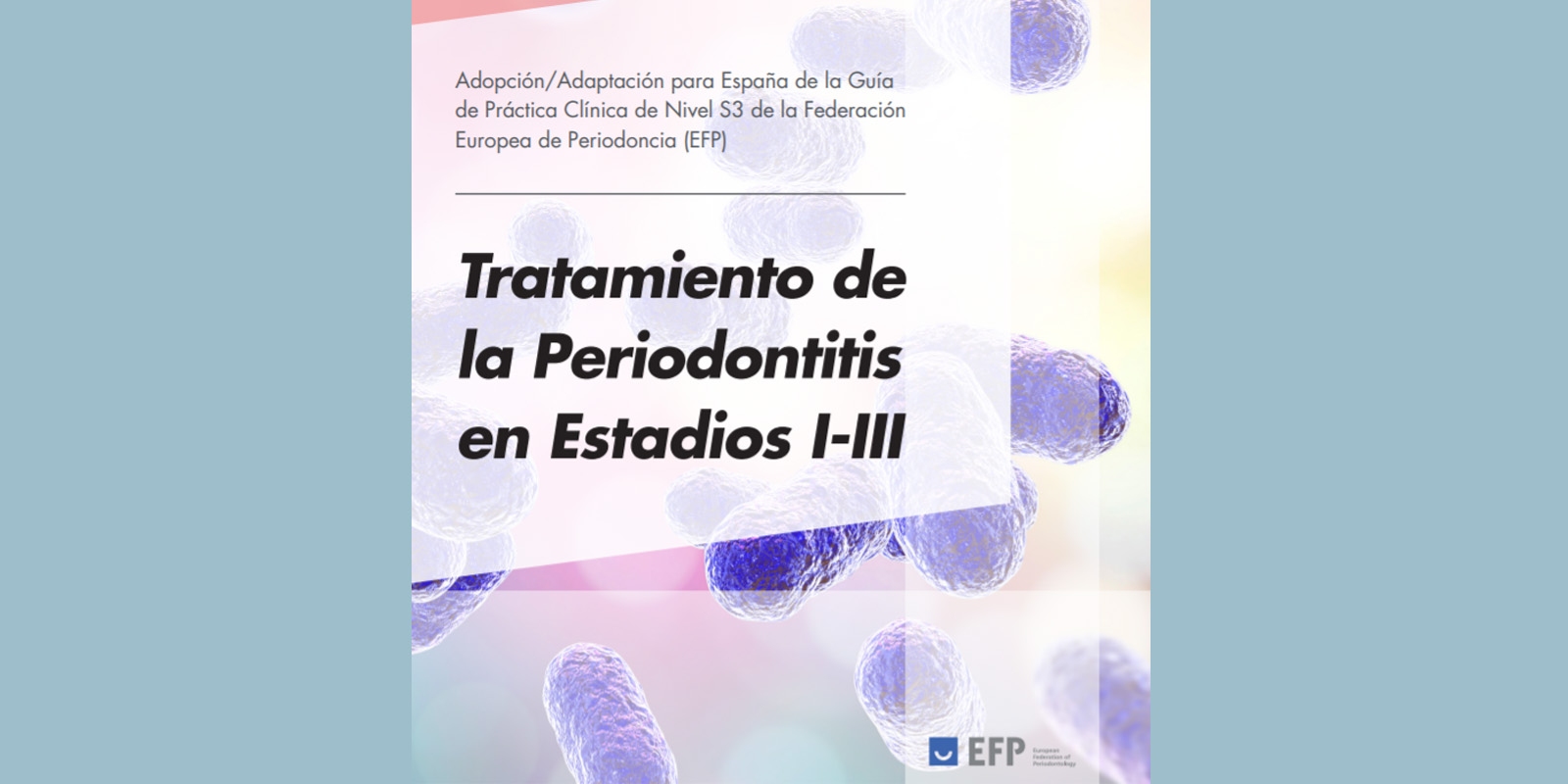DENTAID EXPERTISE
News for dentistry professionals
EuroPerio Series: professional discussions and scientific exchange
17 Feb 2022

To keep the global perio community up to date with the latest research findings as well as give a taster of what is to come at EuroPerio10, the European Federation of Periodontology (EFP) launched last year the EuroPerio Series. The series- part of the EFP Virtual platform for continuing education- focuses on active engagement and interactive content to encourage professional discussions and scientific exchange between experts and the wider periodontal community.
The latest EuroPerio Series session took place on 10 January, with a team of experts focusing on the surgical treatment of peri-implantitis. The session, “Peri-Implant diseases – the Scandinavian connection: What is new in the surgical management of peri-implantitis?”, featured contributions from five leading periodontists who explored aspects ranging from general concepts in treating periodontitis to the specifics of access flaps, reconstructive therapy, and implant-surface decontamination.
Introducing the session, Tord Berglundh, professor of periodontology at the Sahlgrenska Academy, University of Gothenburg in Sweden, noted how when he started to practise dentistry 43 years ago “nobody knew anything about peri-implantitis: there was no disease entity discussed in the undergraduate training programme or in my years in the dental clinic.”
Since “a new disease entity” first appeared in papers from the end of the 1980s, “peri-implantitis has become recognised as a global problem, as a well-established problem in dentistry,” said Prof Berglundh, who was a co-chair of the working group on peri-implantitis at the 2017 World Workshop on the Classification of Periodontal and Peri-implant Diseases and Conditions and author of the EFP’s guidance note on peri-implant health, peri-implant mucositis, and peri-implantitis.
He emphasised that while peri-implantitis around implants was the counterpart of periodontitis around teeth, there were significant differences between the diseases which were important when discussing how to manage peri-implantitis. While inflammation is involved in both periodontitis and peri-implantitis – as a response to the accumulation of bacteria on the tooth or implant – the disease progression of peri-implantitis is usually much faster than periodontitis and peri-implantitis lesions are is often much larger than those involved in periodontitis.
EFP president-elect Andreas Stavropoulos discussed general concepts and features that clinicians should be aware of before starting to treat peri-implantitis.
Highlighting the high proportion of implants that suffer from peri-implantitis – more than one in five – and the rapid disease progression, Prof Stavropoulos (professor of periodontology at Malmö University in Sweden) stressed that it was important to act immediately: “So, don’t wait to deliver proper treatment upon diagnosis.”
He emphasised treating the cause of the disease – the accumulation of pathogens on the implant surface – and the reduction of risk factors such as smoking and periodontitis (the implant failure rate is double in patients with a history of periodontitis). Patients needed to be adept in performing oral hygiene and motivated, he said, and “you cannot take care of peri-implantitis without taking care of what is happening in the rest of the mouth and the rest of the teeth.”
Lisa Heitz-Mayfield, who trained in Sweden and is currently a university teacher at the University of Western Australia and the University of Sydney, Australia, and editor-in-chief of Clinical Oral Implants Research, took up the story and explained access-flap surgical treatment of peri-implantitis and subsequent maintenance.
Jan Derks, a specialist in periodontics in private practice in Gothenburg, Sweden, and an associate professor at the Sahlgrenska Academy, outlined reconstructive surgery to treat peri-implantitis.
And the final speaker in this EuroPerio Series session was Frank Schwarz, professor and chair of the Department of Oral Surgery and Implantology at Johann Wolfgang Goethe-University of Frankfurt in Germany, who highlighted techniques for decontaminating implant surfaces.
Find out more information here: https://www.efp.org/europerio/
About the Author
The European Federation of Periodontology (EFP) is a non-profit organisation dedicated to promoting awareness of periodontal science and the importance of gum health. Its guiding vision is “Periodontal health for a better life.”
Founded in 1991, the EFP is a federation of 37 national periodontal societies that represents more than 16,000 periodontists, dentists, researchers and oral-health professionals from Europe and around the world. It pursues evidence-based science in periodontal and oral health, promoting events and campaigns aimed at both professionals and the public.
RELATED ARTICLES

21 Jan 2022
Xerostomia in COVID-19 positive patients: clinical considerations
Severe Acute Respiratory Syndrome Coronavirus 2 (SARS-CoV-2) the cause of the pandemic known as COVID-19, affects different organs and systems (lungs,…

20 Jan 2022
A guide adapted to Spain to optimise the approach to periodontitis
There are currently numerous clinical practice guidelines to direct the treatment of many systemic diseases (such as diabetes, depression,…

07 Oct 2021
Prescription of antibiotics in the extraction of third molars
The extraction of impacted third molars is the most common surgical procedure in an Oral Surgery and Maxillofacial Surgery unit. Although it is a…
Sign up for the DENTAID Expertise newsletter
Sign up for the newsletter